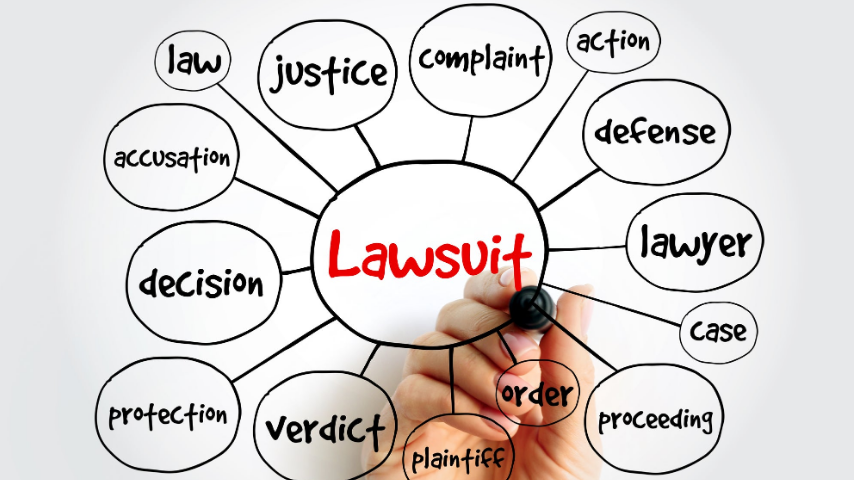- Home
- Problems with being an executor
- Can a Beneficiary Sue an Executor
Can a Beneficiary sue an Executor?
Understand Your Rights
When can a beneficiary sue an executor?
When they believe the executor is violating their fiduciary duties or not acting in the best interest of the estate.
Executors hold a legal obligation to act truthfully, responsibly, and within the law, guided by the intentions stated in the will.
This includes paying off any debts, settling taxes, managing estate properties, and distributing assets to the respective beneficiaries.
Nonetheless, they must not play favoritism, be bias, or act for their own personal gain. They should should stay in touch with the beneficiaries, keeping them informed about the progress and decisions made in relation to the estate.
This can be done through emails or zoom calls throughout the process.
Failure to do these responsibilities can justify a lawsuit. If you the beneficiary believe the executor is mishandling estate assets.
Beneficiaries should also be aware that an executor cannot deliberately keep information or be secretive about estate matters.

In my friend Rachel's situation, she believed her brother was mismanaging their mother's assets and was not being transparent about his dealings with the estate, so she had every right to consult a lawyer and potentially sue her brother for his actions as executor.
However, it's important to remember that filing a lawsuit should be the last resort.
Beneficiaries are often advised to try resolving the disagreements outside of court first, to avoid prolonging the settling of the estate and keep peace within the family.
A beneficiary may ask for a formal accounting, where the executor provides a detailed report of the management of the estate.
If Rachel’s brother does not cooperate, she can petition the court for a compulsory account, leveraging her rights as a beneficiary.
If there are still unresolved issues, the beneficiary may file a lawsuit against the executor.
The court will then inspect the executor's actions and determine whether they have not carried out their fiduciary responsibilities.
If the court finds the executor has fallen short of their duties or acted illegally, it can penalize the executor and, in extreme cases, may even remove them.
Suing an executor requires a substantial investment in terms of time, money, and emotional energy, beneficiaries should consider this path with caution.
On the flip side, if left unaddressed, misbehavior by an executor can significantly affect the value of an estate, directly impacting the beneficiary's inheritances. Learning how to balance these critical aspects and knowing when to sue become paramount.
During the times of grief, emotional family dynamics, and looming legalities, it’s advisable to involve a legal professional versed in estate law.
They can provide guidance and legal counsel, helping Angela's decision on whether or not to sue.
The objective shouldn't solely be about winning or losing the lawsuit, but ensuring fair, transparent, and efficient settlement of the estate.
The best option may be mediation.
Such an approach can often help to avoid family fights, disagreements, and confrontation, preserving the peace and harmony among beneficiaries.
Can A Beneficiary Sue an Executor?
It Can Have an Impact on Inheritance & Estate

The Tale of Simon's Inheritance
Simon, an established artist, suddenly lost his mother, Mrs. Patterson, leaving him and his estranged brother, Michael, behind.
Under Mrs. Patterson's will, her very close friend, Jennifer, was appointed as the executor.
The will was straightforward, it stated that the estate was divided equally between Simon and Michael, including a prized beachfront property.
As the executor, Jennifer's role was to swiftly and effectively administer Mrs. Patterson's estate according to her wishes.
However, Jennifer, who also held an affection for the beachfront property, offered it on sale, justifying that the proceeds would add liquidity to the estate, ensuring smoother distribution.
This action, however, did not resonate well with Simon, who held cherished childhood memories attached to the property, and had already planned for its inheritance.
Simon, feeling cheated and suspecting foul play, decided to take the matter to the court. Feeling backed into a corner, he initiated legal proceedings against Jennifer.
For a beneficiary to sue an executor, they, in this case Simon, had to prove that the executor, Jennifer, was failing in her duties, was doing something against the instructions of the will, or was causing loss to the beneficiaries or the estate - this could be through mismanagement, carelessness, personal interest, or criminal actions.
Simon's lawyer built a case claiming Jennifer was aiming to sell the property not for the sake of adding liquidity to the estate, but to purchase it herself, an act driven by personal interests, resulting in potential loss to the beneficiary.
The court, grounded on the evidence presented, found that the estate held enough liquidity for equal distribution.
They concluded that there was no need to sell the beachfront property, especially considering its emotional significance to Simon.
It also found Jennifer's actions leaning towards her own interests. The court decided in favor of Simon, removing Jennifer from her role of executor, and halting the sale of the property.
This case study shows there are options open for beneficiaries if they believe an executor is not performing their job effectively or ethically.
Executors hold a position of significant responsibility and obligation to carry out the decedent's wishes accurately and legally.
Actions driven by personal benefit leading to potential harm to the estate or its beneficiaries can result in legal action, as demonstrated in Simon's story.
- Home
- Problems with being an executor
- Can a Beneficiary Sue an Executor






